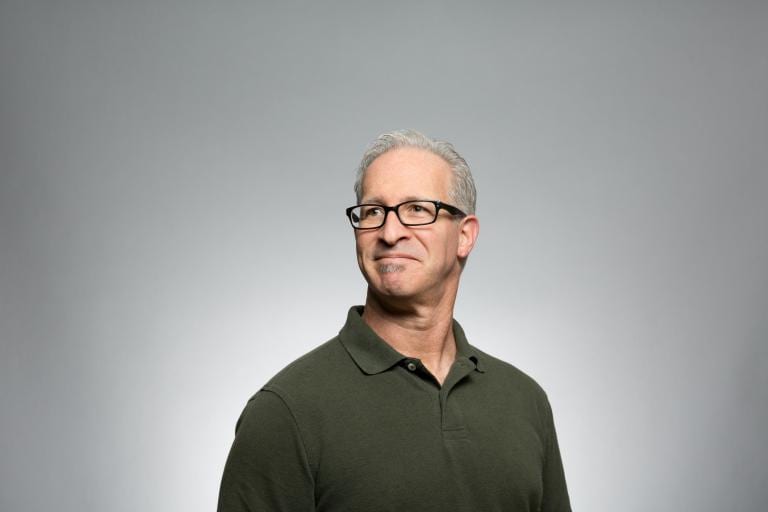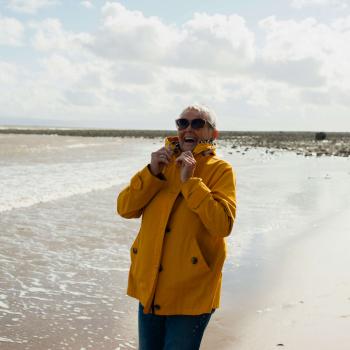
We have a better capacity to be happy as we get older. That’s the finding of a report in an academic publication called Neuroscience and Behavioral Reviews, co-authored by Jamila Bookwala, a dean of psychology at Lafayette college.
It of course raises the question, what is happiness?
Bookwala points out that what defines happiness is unique to each individual, so my idea of happiness may differ from yours. For some people it’s defined as joy, for others contentment. One important factor: Our social relationships play a big role. Bookwala says that as we age, we choose who we want to spend our time with much more carefully. She explains:
As we get older, we still want to be with people, but we want to be with people with whom we are closest. We’re much more selective because we want to be with people who increase our emotional well-being. Our social circles shrink, but we shrink them selectively.
Our world becomes smaller, but it also becomes richer.
Our pursuit of happiness, and what is important to us, changes as we get older. Our circle of true friends grows smaller, but also more intimate and connected. Where we once were preoccupied with the purchase of material goods, or climbing a social or economic ladder, we are now more concerned with satisfying the needs of the soul. The inner life becomes more important than the outer one.
Richard Rohr, writing in Falling Upward, A Spirituality for the Two Halves of Life, points out that we grow older we place greater emphasis on simple pursuits like enjoying “pure friendship, useless beauty, or moments of communion with nature or anything.” It’s a curious paradox. Our world becomes smaller but at the same time it also becomes richer and deeper.
Rohr reminds us that “there is still darkness in the second half of life.” But when challenges do come our way, we are often better equipped to handle them, with less anxiety and greater acceptance. This may be because we now know what really matters in life. In Rohr’s words:
Your concern is not so much to have what you love anymore, but to love what you have—right now.
During the first half of life, we often pursue what I’ll call instant happiness. It’s the quick jolt of pleasure that is found in a night out drinking with friends, pursuing a fling or short-term relationship, or racing down a ski slope or highway at high speed. But happiness can be fleeting, here one moment and gone the next.
On the other hand, as we grow older and move into the second half of life, we seek contentment, a sense of well-being that is deeper and longer-lasting. Instead of looking for new relationships, we look to increase the depth of our existing ones. We get more satisfaction from nestling into the comforts of our own home than spending a night out on the town.
I once stumbled upon a 10-point list on the keys to happiness that John Templeton attributed to an obscure metaphysical author named Rebecca Clark. To me, they read more like keys to contentment and can serve as guideposts as we travel down the road of life. The author’s words are in bold type, my thoughts follow with an assist from John.
10 Steps of Happiness
- Know who and what you are. Be secure in the knowledge that you are a unique individual and add value to the world.
- Count your blessings. Remember that the good already exists in your life. You don’t need to pursue it. Give thanks for these things daily.
- Act maturely. Continue to grow mentally and spiritually, but always wear your learning lightly. Be an example to others, especially those less mature.
- Eliminate fear. Take a breath. Remember the worst possible thing that can happen is usually not as bad as a fearful mind might think.
- Give of yourself. Love. Service. Encouragement. Friendship. Kindness.
- Value simplicity. Because the simple pleasures in life are usually the best.
- Accept change. Learn to flow like a gentle river through the changes that enter your life.
- Exercise the law of unlimited supply. If you sense there is something missing in your life, ask for it. Take action. Believe you will receive it.
- Pause to enjoy life. Each day appreciate the beauty around you. A tall tree. A pretty painting. The sunset. A child. Your best friend or partner.
- Lean on God. We become a little more centered, a little more at peace, when we realize God is always present, in us and around us. Rest in her.

















